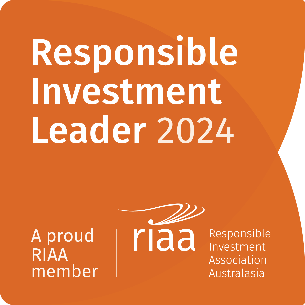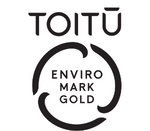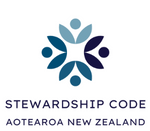Our Fundamental Process in Practice

7 October 2019
At Devon our key focus when building investment portfolios for clients is fundamental research and a recent trip that we made to the US is an excellent example of how this works in practice. Over the course of two weeks, and across nine states, we met with a large number of different businesses, customers, competitors and market strategists. While we don’t invest directly into the US, a number of our portfolio companies have large operations in that market or have US-based competitors. Each meeting gave us the ability to engage with management teams to understand how their businesses are performing, what the risks are and where the opportunities lie.
Interestingly, although there are clear economic risks associated with Trump’s position on trade tariffs, we were able to identify that the US consumer currently appears to be in reasonable shape. Given that personal consumption contributes almost 70% of US GDP, this observation is important and in not one of the meetings we attended were actual or impending economic weakness seen as a major concern. Indeed, in some meetings it seemed as if companies hadn’t been asked about recession risk by US-based investors for a long time. In one discussion, with a US retail bank, our questions around balance sheet risk and credit growth were met with some bemusement and ultimately dismissal. Also, when questioning the management team at entertainment business MGM, they identified that across their different divisions of non-gambling entertainment, accommodation, food and beverage and conventions, demand was steady and strong. Of course, these management observations are focused on recent history and we are wary that the continuing fallout from the trade war (which to date has been felt in the manufacturing sector) will begin to have a broader impact. Nevertheless, it is clear that at the time of our meetings consumer focused corporates were feeling optimistic.
Much of the earlier stages of our trip was spent on companies operating in entertainment, residential property, on-line gaming and consumer-based industries. These companies again reported strong consumer interest and few economic headwinds, but disruption and technology continue to be a key and constant focus. The development of technology in the US, as it is across New Zealand businesses, is seen as both a friend and an enemy of a company’s future prospects. Product development is key and consumer tastes are changing faster than ever. Our meetings with media and telecommunications companies such as Starry and Verizon were great examples of this as they enabled us to develop much greater insights into the challenges and opportunities facing our local telecommunications and broadband companies including Spark, Chorus and Telstra.
One of the particular focus areas from this US research program was James Hardie, a stock that we now own across many of our portfolios. Hardie’s is a well-known building materials brand in this part of the world but, perhaps less well-known is that the bulk of their business is exposed to the US housing market, where its primary product is fibre cement. Hardie’s USA has been extremely successful over the years and its growth has been driven by increasing the share of fibre cement in the siding market; the company has greater than 90% market share in the category. While the overall story has been one of multiple years of compounding success, last year Hardie’s faced challenges in their manufacturing capacity, at a time when the American housing market was slowing. The timing of these issues (they broadly coincided with the overall stock market sell-off in late 2018) saw Hardie’s share price hit hard, and their stock price fell by nearly 40%. This was despite their earnings guidance remaining largely unchanged. We added a sizable position across several funds early in 2019 after our analysis concluded that their core business remained in good shape. The stock has since recovered all its lost ground and we benefitted on this US trip by meeting with management and determining that their strategy remains viable and their growth prospects are intact. For Hardie’s the value opportunity remains significant.
Another Australian listed business that we spent a large amount of time with on the east coast was News Ltd. News today is a much smaller business than it was several years ago when we last held it across our portfolios. At that time, we generated positive returns as News Corporation (as it was then) engaged in a corporate separation to simplify its structure. Today the News Ltd business is mainly composed of print media across three countries, Harper Collins book publishing and on-line real estate classifieds.
The investment rationale for owning News Ltd today is that even after its corporate structure was modified several years ago, and its component business lines were reduced, there is still value upside to be achieved through another round of corporate rationalization. Ultimately the value of the individual constituent parts is worth more separated than when they are grouped together. Through our meetings with management we were interested to explore their commitment to a program which would unleash some of this latent opportunity. We were encouraged by the discussions we had and News (or rather its major shareholder Rupert Murdoch) has recently made several strong indications that asset rationalization is a possibility. Consistent with this strategy they have recently broken up Fox and announced the potential divestment of News America Marketing.
Overall this was an extremely successful research trip. We developed increased confidence in the views that we had in a number of existing investments and additional potential opportunities were identified. The benefit of our fundamental approach is that through our direct engagement with companies, their management teams and their boards, we are able to cut through the noise that exists in the capital markets and, we believe, dramatically improve the risk adjusted return potential for our clients. As a further benefit, we are able to actively engage in ESG-related issues and push companies to increase their focus on sustainability.





